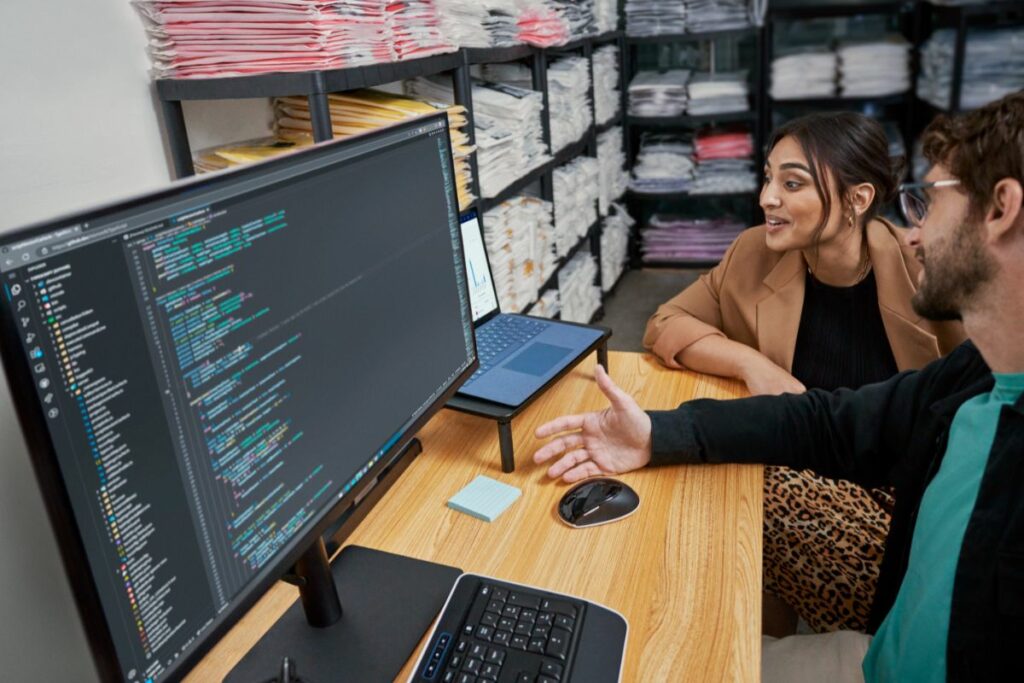Almost two-thirds of retailers surveyed for a report by Retail Gazette and retail technology company K3 said they expect to be operating fewer but better stores by this time next year, against a backdrop of significant transformation in their industry.
Some 80 per cent of those questioned said they had used the pandemic to make business changes they felt were required for a while, and they indicated a desire for tech-enabled shops and better connectivity between physical and digital retail operations.
However, there was also an acknowledgment from most respondents there is still much work to do to establish the all-important “single view of customer” across multiple channels, which is crucial for retailers wishing to meet today’s savvy shoppers’ needs.
The report also revealed those already adopting a headless commerce approach in their retail technology deployment are 28 per cent more likely to report they are meeting their customers’ demands than those who are not.
It was against the backdrop that Retail Gazette and K3 hosted a virtual roundtable event with a diverse range of retailers and brands, brought together to discuss what is required to maintain relevance in the eyes of shoppers, in the wake of Covid and several huge retail brands disappearing from UK high streets and shopping malls recently.
The event welcomed retail decision makers from Boden, Ellis Brigham Mountain Sports, Heidi Klein, Joules, Mulberry, Next Beauty, White Stuff, and Wolverine, as well as former senior staff at French Connection and Marks & Spencer.
From retailers’ growing focus on technology and the industry’s environmental footprint, to the rise and fall of the Arcadia high street fashion empire and how to avoid succumbing to the same fate of Sir Philip Green’s business, no stone was left unturned.
Rethinking real estate
There’s a need for more exciting collaborations in retail and for some of the innovative start-up online brands to set up shop on the high street, in shopping centres or in traditional stores, according to one retailer at the roundtable.
“Give us the fashion we all crave,” she said, adding the physical retail space “needs something different” to help encourage more people into shops.
Then consensus from the event was stores need a refresh, and retailers need to do all they can to provide an exciting and enticing environment in which to shop. But there are clear barriers to this vision becoming a reality.
Rosey Cortazzi, managing director of Heidi Klein and roundtable participant, described some of the challenges, saying: “We need to see flexible store models, including more turnover-based rent options, pop-up style premises, and adaptable spaces.
“At present, rates are still putting retailers off investing in physical space – this needs a rethink and things have got to change to make it easier for organisations to open shop space.”
Respondents to the Retail Gazette-K3 survey suggested there is a big focus on training store staff to be more consultative in their approach to selling. This goes hand in hand with the growth in experiential retailing many brands are deploying as a way of creating more compelling physical shopping experiences.
Ian Earnshaw, commercial director at Mulberry and one of the roundtablers, offered a view on how retailers are thinking about this issue.
“It’s easier for some retailers than others to provide experience-led customer interactions in stores,” he explained.
“For example, department stores use their great square footage to innovate and provide retail entertainment but that’s not as easy for companies with a smaller physical format, it is therefore important for us to think how we can connect with these consumers through new services, convenience and one-to-one connections.”
He added: “Mulberry has seen more success in transforming experience in stores that are situated in locations under single ownership rather than those run by private companies. The relationship between landlord and tenant is an incredibly important factor in the success of a physical retail space.”
Customer connectivity
Our research shows almost every retailer is focused on improving customer service, but nearly a third of them admitted time-consuming and complex integrations stop them in their tracks when it comes to deploying the most suitable technology for the job.
“The investment required for change is holding retailers back,” Earnshaw noted.
“There are always more projects to do than the investment available, having said that, we all know we have to keep up with ever changing customer behaviour. We do not have the luxury of standing still, there have been many examples of what happens in retail when this is the case.”
Some 61% of retailers questioned as part of our report said they are investing in connecting their online with their store estate, showing recognition that such an omnichannel approach to retail is important in today’s market. It’s how retailers can truly understand their customers’ behaviour across multiple channels.
Seb Villien, head of eCommerce at White Stuff, who joined the roundtable debate, remarked: “You have to adapt as a retailer to changes in customer behaviour, and it’s vital to empower your teams with the right data.
“Having a single view of stock and customers across all the channels on which you serve customers is crucial.”
He added: “It’s more important than ever not to look at channel performance in silos; everything is connected. If a retailer closes all their stores tomorrow, they are not going to have the same sales online.”
The future and avoiding “doing an Arcadia”
Our report analysed the reasons why Arcadia and other retailers, such as Debenhams which is closing its stores for the final time in the coming weeks, went bust. Some 36 per cent of those surveyed said Arcadia collapsed because it lost touch with its core audience.
There was strong agreement that lack of customer knowledge and agility – as well as the fact its digital business was disconnected from other channels – put pay to the former high street retail anchor. During the roundtable debate, participants suggested Arcadia had lost its role as “the place people learnt their retail education” and some claimed it was a digital laggard.
Summing up what is required in today’s retail market, Cortazzi said: “Retail – particularly fashion – is all about inspiring a dream and getting hearts racing.”
To do that, retailers understand ongoing change is required to stay up to date with what consumers demand from them, which today includes bringing newness to market, being ethical and concerned about the environment, and providing a connected offering across channels.
As Andrew Mann, managing partner of the NorthBailey consultancy, and former Clubcard director at Tesco, told the roundtable: “Retailers can’t simply be knowledge-based any more, they have to be learning organisations – it’s crucial they are able to learn quickly and react at pace.”
The roundtablers also agreed customers want to be understood and served appropriately wherever they interact with a retailer.
Mark Gaydon, from K3 Business Technologies, who was part of the discussion, said: “It’s clear from the roundtable conversation, operational adaptability and a laser focus on customers are prerequisites in successful modern retailing. Investment in the right retail technology can ensure retailers avoid a similar fate to some of the major businesses we’ve seen disappear from our communities in recent times.”
He added: “K3|Imagine, our agile cloud platform, and headless commerce solution, enables a single view of customers and the business. Using the principles of headless commerce, we have separated the customer and user interaction points, or the “heads”, from the underlying business logic and processes. This enables retailers to integrate our cutting-edge POS and back-office modules with their existing legacy tech on one intelligent cloud platform, and drive connected, innovative retail experiences for their customers across multiple channels.”
Gaydon continued: “I would be delighted to share how this concept will ensure immediate benefits and in the medium to longer term.”
Want to understand more about the key debates discussed in the roundtable? Download the Retail Gazette-K3 report on The Race for Retail Relevance.
Click here to sign up to Retail Gazette‘s free daily email newsletter


















